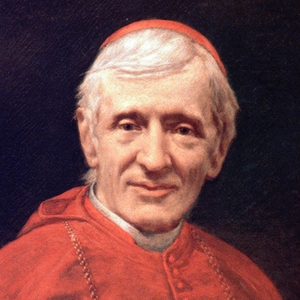With the news that St. John Henry Newman will be declared the next doctor of the Church, speculation has swirled about what, if any, “subtitle” Pope Leo XIV might bestow upon the 19th century English theologian and convert.
Doctors of the Church are saints whose teaching has profoundly illuminated some aspect of the Catholic faith. The Church will often give them a specific title to highlight their contribution or their personality.

St. Thomas Aquinas, for instance, is the Angelic Doctor, owing to the clarity and loftiness of his teaching and his purity of life. St. Cyril of Alexandria is known as the Doctor of the Incarnation for his defense against the Nestorian heresy at the Council of Ephesus. And just a few years ago, St. Irenaeus of Lyon was dubbed the Doctor of Unity by the late Pope Francis, a tribute to the second-century Church father’s roots in both the East and the West.
For St. John Henry Newman, who was both a theological genius and a compelling Christian witness in his own right, the possibilities are aplenty.
Will he be dubbed the Doctor of Development, a tribute to his brilliant exposition of how the Church’s understanding of doctrine organically and faithfully deepens over time, which was enshrined at the Second Vatican Council? The Doctor of Education, for his enduring vision of Catholic higher education? Or the Courageous Doctor, a recognition of the personal and professional cost he paid for leaving the Anglican establishment to join the Catholic Church after he became convinced it was the true Church?
All of these would certainly capture an element of Newman’s theological genius and/or heroic life, and, as such, would be worthwhile contenders.
But for my part, I’d name St. John Henry Newman the Doctor of the Heart.
No, not in the sense that the saint was any kind of “love doctor,” at least not how we understand that term today. Instead, I’d argue that the guiding light of his theological endeavors and his personal life, the “Ariadne’s thread” that connects it all together, was a profound attention to and understanding of the heart — which for him stood as the core of one’s personhood — in the Christian faith.
This isn’t a particularly earth shattering claim. St. John Henry Newman’s personal motto, after all, was cor ad cor loquitor — or “heart speaks to heart.” He chose it because of his conviction that the truth of Christianity was most compellingly communicated not through abstract argumentation, but through the personal influence of witnesses, “who are at once the teachers and the patterns of it.”
St. John Henry Newman experienced this in his own life, as heart-to-heart connections with English contemporaries like Ambrose St. John — but also historical figures like St. Augustine — played an important role in his own conversion and Christian journey.
But I think it often goes underappreciated just how central this emphasis on the heart and on personal influence was to St. John Henry Newman’s entire theological project.
For instance, in “Grammar of Assent,” the saint argues that the “whole person — symbolized by the heart — needs to be involved in assenting to religious belief in order for one to “believe as if they saw.” And “the heart is commonly reached,” St. John Henry Newman wrote, “not through the reason, but through the imagination…”, because “Persons influence us, voices melt us, looks subdue us, deeds inflame us.”
Likewise, in his “The Idea of a University,” St. John Henry Newman is certainly concerned with the various branches of knowledge and how they are to be taught, but he makes clear that “the personal influence of teachers upon pupils” is what makes the whole enterprise successful. Without it, he writes that an academic system “is an artic (sic) winter; it will create an ice-bound, petrified, cast-iron university, and nothing else.”
Finally, St. John Henry Newman is also attentive to the importance of personal influence in the growth and development of the Church. As he writes, “living moments do not come of committees,” but are made potent through the force of personal influence.
The importance of heart speaking to heart is indeed woven throughout St. John Henry Newman’s entire theological project. And it’s a valuable insight for us to recover amid our current crisis.
From AI-driven chatbots to ideological ossification, so many of us are severed from encountering the hearts of others and even our own. Rather than a source of communion with God and our neighbor, our hearts are closed off and turned inward, reduced to organs of self-preservation and indulgence.
In the early stages of his papacy, this seems to be a primary concern of Pope Leo’s. Perhaps he’ll address it by designating St. John Henry Newman as a doctor of the Church who can help revivify our stagnant hearts.



